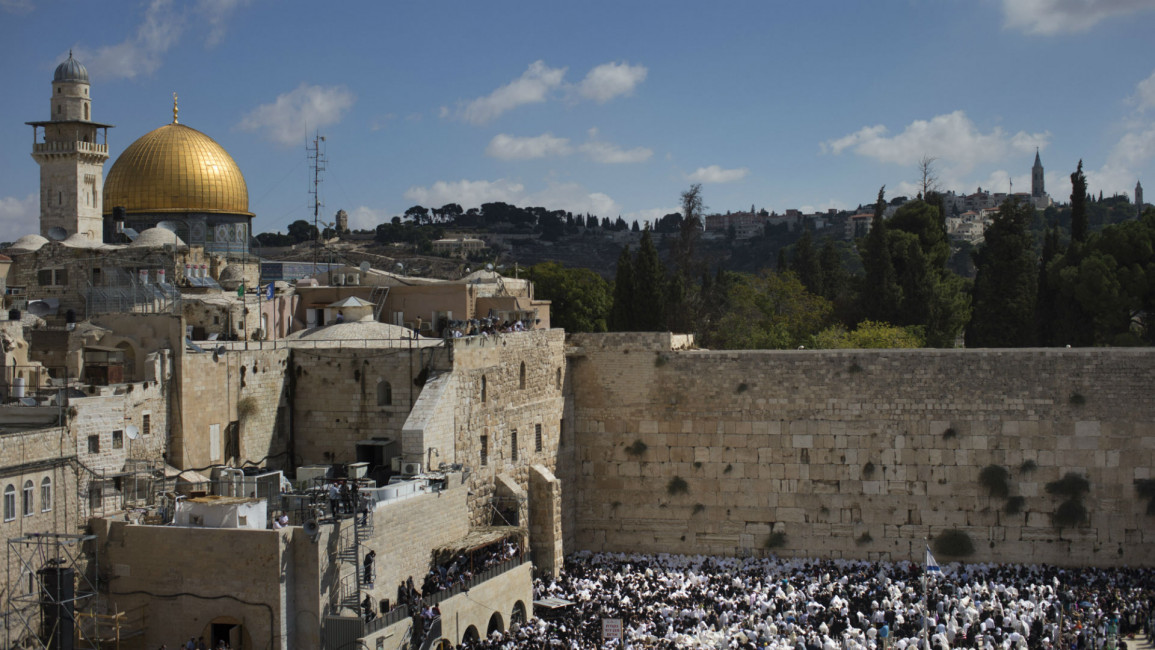Haredi Jewish group calls for ban of non-Orthodox prayer at Western Wall
An ultra-Orthodox party in Israel is demanding "significant measures for deterrence" against non-Orthodox prayer at the Western Wall as Prime Minister Benjamin Netanyahu puts together his far-right cabinet.
United Torah Judaism (UTJ), a Haredi, religious conservative political alliance in Israel, is insisting that the new cabinet – believed to be the most far-right government ever in Israel – makes law the principle that prayer at the Jewish holy site in Jerusalem be held "according to the custom of the Chief Rabbinate," Haaretz newspaper quoted Army Radio as saying Thursday.
The political alliance demanded from Netanyahu, in the final stages of forming his coalition cabinet, that "the law will be amended by taking significant steps to deter those who desecrate holy places in their behaviour which is not according to the rabbinate and rabbi of the Kotel."
"Palestinians view their presence and the status of their Muslim and Christian holy sites in East Jerusalem as being under existential threat"
— The New Arab (@The_NewArab) November 20, 2022
@emadmoussa examines Jerusalem's fragile status quo in the wake of the recent Israeli elections ⬇ https://t.co/vkBPD5WQMM
The amendment would effectively criminalise prayer by the Reform and Conservative movement, as well as the multi-denominational feminist prayer group Women of the Wall, according to Haaretz.
Both groups have denounced the demand.
"It remains unclear if UTJ's latest demand includes closing the makeshift egalitarian space that is currently used by non-Orthodox worshipers," added the newspaper.
The Israeli government announced in 2016 the opening of a prayer space for mixed-gender ceremonies and non-Orthodox Jews at the Western Wall.
Current regulations that govern behaviour at the Western Wall since 1981 forbid holding “a religious ceremony that is not in accordance with the local traditions.”
In 2013, the High Court of Justice ruled that female-led prayers do not violate this prohibition. However, they would be in violation of the law if the standards were matched to the Rabbinate’s views against female-led services and mixed-gender prayer.


![Bahrain [getty] Bahrain [getty]](/sites/default/files/styles/image_330x185/public/media/images/5F28B59A-942B-4B6A-A5A8-09D476D1E68D.jpg?h=d1cb525d&itok=NJNXWh5z)